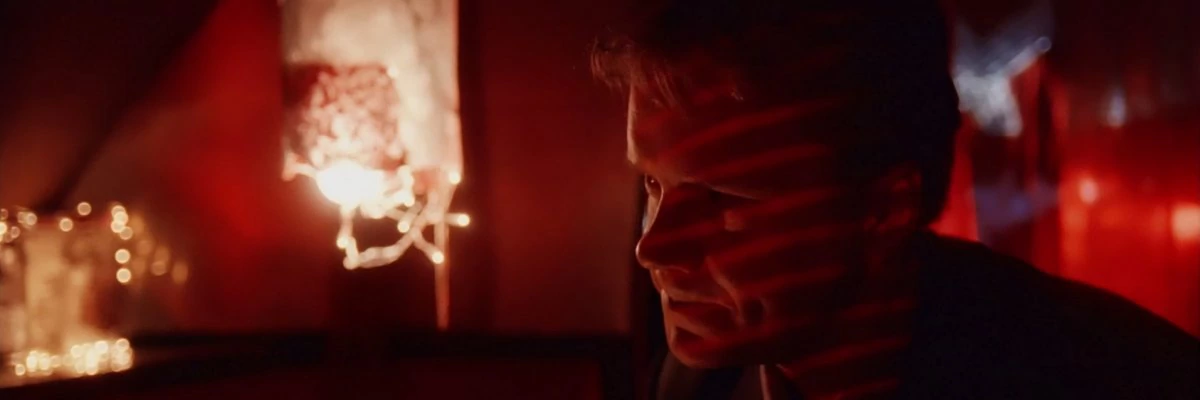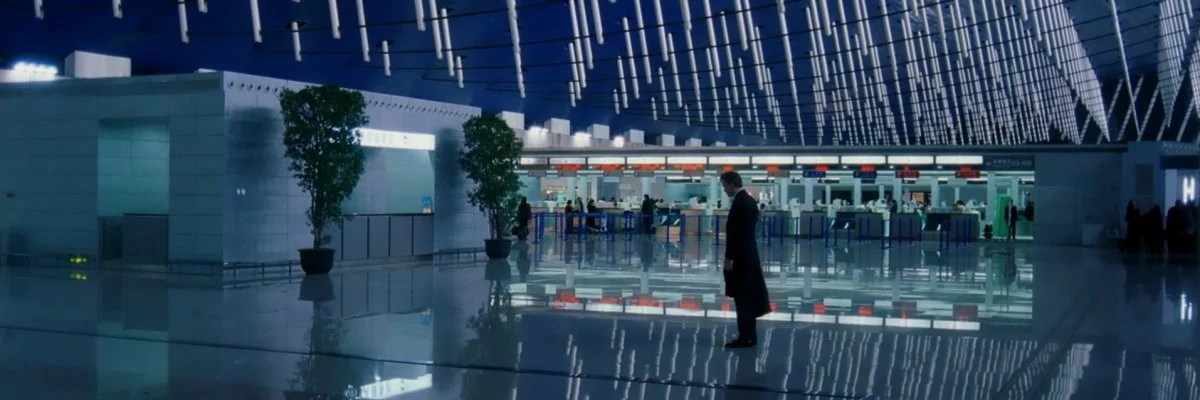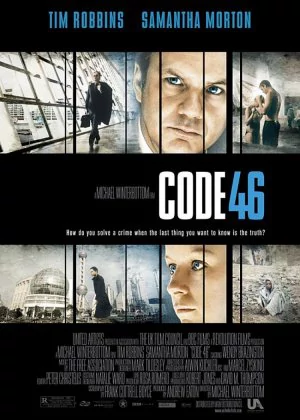Code 46
The early 21st century was a prime period in Michael Winterbottom's career. He cycled through different genres and formats and managed to cook up something interesting almost every single time. Code 46 was one of those experiments, a film that mixed romance and sci-fi elements without going overboard on either genre. It wasn't a movie that wowed or amazed, nonetheless it felt like quality film making through and through. I've since revisited some of his films and not all of them held up, so I was a little hesitant to give Code 46 another watch. I was pretty happy this one held up better than the others, its original appeal hadn't faded one single bit.

It's impossible to capture Winterbottom in a single niche. He drifts between comedy, drama and thriller, narrative cinema and documentary film making. I've seen a fair bit of his oeuvre, but he's a rather busy man and I haven't been able to keep up with him, especially in recent years. The only constant seems to be that his work is rather low-key. Though many of his films contain novel ideas and original concepts, the execution tends to be more subdued and introverted. Code 46 is no different. There are some smart ideas here that add to the sci-fi appeal of the film, but in the end you might not even remember this as a true sci-fi.
Code 46 is set in the near future. The film was made almost 20 years ago, which means our reality should've caught up to Winterbottom's vision by now, but we're not quite there yet. I still get the feeling it paints a (believable) near future setting, it's just a bit closer in reach now. Code 46's basic premise revolves around the idea of DNA control, which is still a little way off from becoming an everyday reality. Winterbottom's future plays with designer drugs increasing people's abilities, DNA match-ups influencing relationships and DNA passports giving access to more well-off areas.
William works for a company that unearths liars and cheats. He has an increased empathy enhancement that allows him to uncover people's darkest secrets from just the most basic interactions. He's flawless, until the day he meets Maria. She works in a passport factory and smuggles travel permits, which she distributes on the black market. William is on to Maria, but he's also wildly attracted to her, so he decides to protect her and pin the case on someone else. Maria introduces him into her world, but after a passionate night William decides to return to his family. What he doesn't know is that he set something in motion he won't be able to undo.

Visually Code 46 is a rather attractive film, even though there's little CG or explicit sci-fi imagery. Winterbottom was smart to shoot in modern-looking locations for the upscale society scenes (giving the film its clean and futuristic look), and more slummy places for the lawless outskirts. He also goes for more impressionistic camera work. It's not full-on documentary style, but with the camera closely trailing the characters it's obvious Winterbottom wanted to give the audience a better feel of this futuristic world. And I have to say, it's pretty effective.
The soundtrack is a little lacking. There's a bit too much pop music, which inevitably dates the film. It's not that Winterbottom litters Code 46 with boy bands or billboard music, but I feel there were better options. A soundtrack composed of music slightly more in line with the cultural diversity presented in the rest of the film would've given it that extra boost. The original score is decent, but not that notable. Atmospheric music that goes well with the film, but doesn't demand a lot of attention. All in all, the music is decent enough, but the potential was there to do better.
The cast does an excellent job, especially considering both Tim Robbins and Samantha Morton aren't among my favorite actors. They're a bit of an odd couple and I can't say this is the most smoldering romance every captured on screen, but the performances of the two feel natural and somehow their relationship makes sense, even though it's hard to pinpoint why exactly. It's a good thing too, since there are no real supporting actors to speak off. Just some actors who appear and fade out of the film after one scene, so all the weight lies on the shoulders of Robbins and Morton.

The thing that makes Code 46 stand out is that Winterbottom's vision of the future isn't just technological or societal, but also cultural. That's a thing often missing from sci-fi cinema, probably because it's a lot trickier to accomplish. It's not just about important changes and/or novel ideas that could shape our future, but also about more nuanced and subtle adjustments. One thing that jumped out is the language, which has become a melting pot of different languages. A logical evolution, especially in our multi-cultural world. It's these details that make the world of Code 46 a vibrant place, a world that feels alive and lived in, not some conceptual vehicle for a story.
Code 46 is one of those films that balances genre and arthouse, with the chance of alienating both groups of core fans. I'm not surprised that the film never made a big dent, on the other hand it's nice to see that it hasn't lost any of its appeal over the years. Code 46 serves a vivid vision of the future, a world that looks and feels plausible, even when reality should've caught up with it by now. A sign of clever, relevant sci-fi if there ever was one. It may not be the easiest film to recommend, but people who like the work of Winterbottom and haven't seen this one yet should definitely give it a try.
